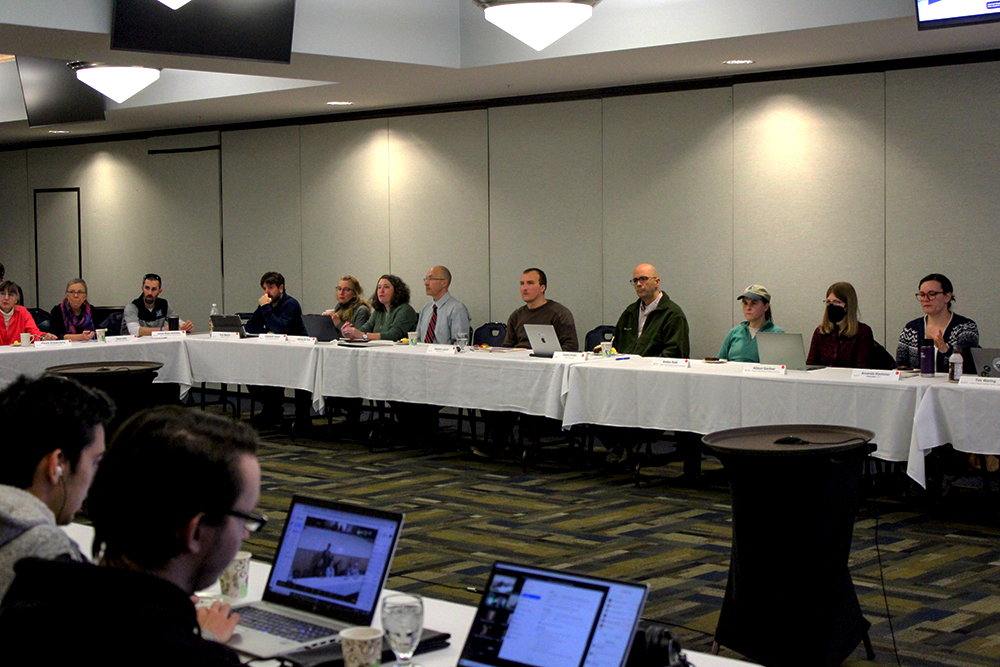The Faculty Senate convened on Feb. 9, 2023 in Wells Conference Center to discuss prevalent topics that relate to the future of our University, including budget allocation and the increased employee involvement in decision-making efforts.
Firstly, President Ferinni-Mundy provided the members with an update on Maine Day Week. She elaborated on how well the task force has been doing in terms of preparing for this event with themed activities. They are currently striving to apply a strong emphasis on community service and philanthropy. This year, classes will be held on Wednesday, April 27 as a means of breaking previous patterns of recklessness and injury, according to administration.
Education management professional Amanda Thibodeau proposed an expansion of the on-campus Childcare Center for $8 million. The funding would be put toward an extension of the building, which will allow for current enrollment to increase from 78 children to 178.
If the administration moves forward with this proposal, faculty, staff and parents will benefit substantially. One of the arguments as to why the expansion is favorable to UMaine specifically is that we are one of the only areas with regional hospitals, and to move forward with this decision would be to further service the Northern Light communities.
Allison Gardner, associate professor of biology and chair of the Faculty Senate Academic Affairs Committee, gave insight as to the master plan of the Gen-Ed Stewardship Committee. They meet twice a month to review a variety of issues, with a wide range of representatives.
The primary objectives of the committee are to draft a description of gen-ed admission, receive feedback surveys and most importantly, redefine the pathway of these categories. Of the 900 gen-ed courses, many are not taken due to either not being a degree requirement or not being particularly popular. The results of said assessment surveys will greatly influence both the reduction of potentially unnecessary classes and the introduction of a refined list of courses.
“The goal for the gen-ed assessment process moving ahead is to put in the hands of faculty the direction of our budget planning,” Gardner said.
In terms of resources and budget allocation, there will be listening sessions that include cabinet members, deans and directors as well as additional working sessions in order to create a multi-layered approach to faculty input.
There will be two readings of the proposed plans. The first is in March and will focus on growth and revenue generation while the second, in April, will revolve around consolidation of efficiency and allocating opportunities.
To succeed in correcting the structural deficits within our system, UMaine needs more clarity in terms of identity as an institution and where priorities lie. One possible solution is to open town halls for all faculty, rather than just senators. In addition, the rationale for not accepting particular ideas should be made clear to members of UMaine. To do this, a formal feedback mechanism would need to be implemented.
“The key thing I want to emphasize is that this is a community effort where we need to be strategic and collaborate,” Ferrini-Mundy said.
It would be valuable to incorporate a narrative that clarifies precisely how these ideas are translated into numbers. By articulating criteria and intended prioritization, staff and faculty will have more guidance in terms of providing realistic solutions.
For more information about the Faculty Senate, visit https://umaine.edu/facultysenate/.








